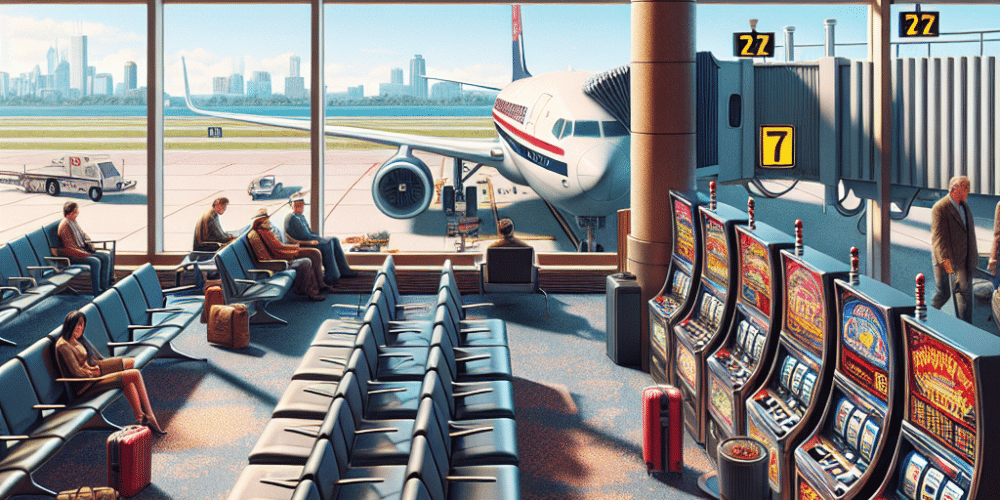Chicago Mayor Brandon Johnson’s administration is contemplating the introduction of slot machines at O’Hare and Midway International Airports. This proposal emerges amid efforts to mitigate a substantial $1.15 billion budget shortfall, with gambling reforms being evaluated as potential revenue streams.
The Rebuild Illinois Act of 2019, signed into law by Governor JB Pritzker, sanctioned the establishment of six new land-based casinos across the state. Most notably, five of these casinos were designated for the Chicago suburbs, while one was planned for the downtown area. Bally’s Corporation was subsequently chosen as Chicago’s exclusive casino operator and is currently in the process of constructing a $2 billion resort in the River West neighborhood.
In addition to these developments, the legislation allows for the installation of slot machines at Chicago’s primary airports, provided they are situated beyond the TSA security checkpoints. During her tenure, former Mayor Lori Lightfoot elected not to pursue this option. However, Mayor Johnson appears open to exploring the potential benefits.
Should this initiative proceed, Chicago would join Las Vegas and Reno as the only cities in the United States where travelers can gamble at the airport. Slot machines in Las Vegas’s airport have long been a fixture, attracting visitors eager to gamble upon arrival or during their wait for flights. The machines often offer low payout rates, yet they remain popular among both tourists and locals.
For more than forty years, Michael Gaughan has maintained exclusive rights to operate slot machines at Harry Reid International Airport in Las Vegas. His company, Michael Gaughan Slots, oversees over 1,000 units across the airport’s terminals. A significant portion, approximately 86.5%, of the revenue generated by these machines is allocated to Clark County, supporting the operations of the county-owned airport.
The proposal to introduce slot machines at Chicago’s airports is garnering support among city officials. Alderman Gilbert Villegas of the 36th Ward has expressed optimism regarding the financial benefits, projecting potential earnings of up to $40 million annually for the city. He argued that the General Assembly has already granted the requisite authorization, and viewed the move as both a logical and straightforward decision. Villegas criticized previous administrations for their inaction on this opportunity.
Addressing concerns about the potential impact on the city’s image should slot machines greet travelers, Villegas dismissed such worries. He argued that the presence of slot machines would provide a diversion for passengers facing flight delays or reroutes, offering a means to pass the time. Additionally, Villegas highlighted the opportunity to generate revenue from visitors while granting Bally’s Corporation an avenue to enhance its brand visibility.
While the economic benefits are appealing, the initiative is not without its detractors. Critics argue that the presence of gambling machines at airports could detract from Chicago’s cultural and historical reputation. They fear it might send the wrong message to first-time visitors, overshadowing the city’s rich architectural and culinary heritage.
Contrarily, proponents maintain that integrating slot machines into the airport environment aligns with global trends, where airports are increasingly becoming hubs of entertainment and leisure. They contend that this move could enhance the appeal of Chicago as a destination, offering travelers a unique experience in line with major international airports.
In the broader context, the discussion around airport slot machines reflects a growing acceptance of gambling as a legitimate economic driver in the United States. Cities and states are increasingly considering gambling reforms as viable solutions to fiscal challenges, balancing potential economic gains with social and cultural considerations.
Ultimately, the decision on whether to proceed with the installation of slot machines at Chicago’s airports will hinge on a careful evaluation of the potential economic benefits against the city’s long-term tourism and cultural objectives. Mayor Johnson’s willingness to entertain the idea suggests a pragmatic approach in addressing the city’s financial challenges, signaling a potential shift in how Chicago leverages its assets to generate revenue.

















